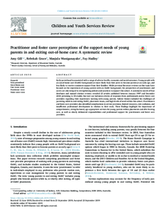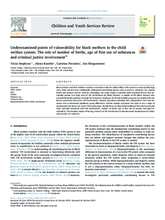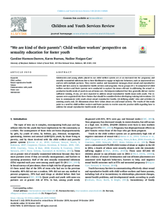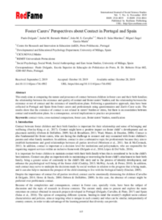Displaying 641 - 650 of 2221
This literature review sought to explore the perspectives of practitioners and foster care providers on the topic of young people in and exiting out-of-home care (OoHC) who become parents at an early age.
The current study employed a cluster analysis to identify unique patterns of functioning among adolescent mothers leaving foster care aged 19.
The purpose of this study was to explore the experiences foster alumni college students (i.e., students who, as adolescents, were in foster care or other out-of-home conditions) considered pertinent during their first year in college.
The purpose of this systematic review was to examine the type, format and content/competencies of published foster parent preservice training, study characteristics of published preservice training research, and the methodological characteristics and primary findings of published foster parent preservice training research.
The purpose of this study was to explore early adulthood education and employment trajectories among young adults who experienced out-of-home care during childhood and to examine how various care history factors predict these trajectories.
The purpose of this qualitative study was to understand the extent to which the core tenets of attachment, identity, self-efficacy, and critical race theories collectively explain or validate experiences of school engagement and academic outcomes among pregnant and parenting teens in the child welfare system.
With research into traditionally understood contributing factors such as poverty, substance use, mental health and intimate partner violence abounding, this study sought to identify underexamined factors that potentially sustain very high rates of child welfare (CW) involvement for Black mothers.
In this study, focus groups comprised of child welfare workers and foster parents were conducted to capture the issues relevant to addressing the sexual reproductive health needs of youth in out-of-home care.
This study aims at comparing the nature and processes of contact between children in foster care and their birth families; the relationship between the existence and quality of contact and foster carers’ burden; and the relationship between the existence or not of contact and the existence of reunification plans.
This exploratory data analysis of 937 children in 522 families in one London local authority sought to identify trends in the length, outcome and nature of pre-proceedings and proceedings cases, including outcomes six, twelve and twenty-four months after the end of these processes.





